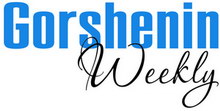
EGF Gazprom Monitor 
(176 Kb)
A Snapshot of Key Developments in the External Relations of the Russian Gas Sector
Key points:
- Greece – Gazprom appears set to take part in the tender for the purchase of Greek state monopoly DEPA SA,
with the aim of gaining direct access to local gas consumers
- Israel – Gazprom continues to negotiate some form of participation in the Israeli ‘Leviathan’ and ‘Tamar’ gas
fields. A preliminary agreement for the purchase of 2‐3 million tons of LNG has already been reached as
Gazprom strengthens its position in the Southern European gas markets.
- Ukraine – European investors are losing interest in the modernisation of Ukraine’s gas transportation system
(GTS), suggesting a possible Gazprom‐Naftogaz deal as Gazprom seeks direct access to Ukrainian gas
consumers.
- Ukraine – The winter dispute over the short supply of Russian gas to Western Europe via Ukraine continues as
Gazprom and Naftogaz trade mutual accusations.
- Nord Stream – The European Commission has ruled that 33‐50 percent of the capacity of the two pipelines
(NEL and OPAL) which connect Nord Stream to the rest of Germany’s gas infrastructure must be reserved for
Third Party Access, potentially forcing Nord Stream to operate at less than full capacity.
- Lithuania – Gazprom is trying to challenge the conditions of the EU Third Energy Package in court, with
Lithuania the test case. Yet the most Gazprom can hope to achieve is a delay in the unbundling of Lietuvos
Dujos.
- Lithuania – In a bid to reduce its dependency on expensive Russian gas supplies Lithuania is seeking
alternative suppliers and has proposed a gas swap deal with Gazprom. However, a more realistic
diversification option seems to be the construction of a new gas import pipeline from Poland.
- Europe – Negative operating results and the continued disparity between spot market and long‐term
contract prices are prompting European energy companies to seek price concessions from Gazprom.
- Russia – An increase in revenues from higher Russian domestic gas prices looks set to be offset by an increase
in the Mineral Extraction Tax rate for Gazprom. The Ministry of Finance and the Ministry of Energy are
discussing a new draft law that would deprive Gazprom of 80 to 100 percent of the potential extra
profits from higher domestic gas prices. READ MORE
- EGF Editorial |
Published on EGF: 16.04.2012
| External Relations
-
Prosecutor's office sends materials of new case against former Prime Minister Yuliya Tymoshenko to court 
(2 Mb)

ISSUE #12
04/02/2012
A court will start to consider a new case launched against former Prime
Minister Yuliya Tymoshenko in the nearest future.
On 29 March 2012, Kharkiv Region's prosecutor Hennadiy Tyurin said that the
prosecutor's office had submitted to the Kharkiv Kiev district court materials of the
criminal case against Tymoshenko over alleged fraudulent activity of the United
Energy Systems of Ukraine (UESU) company. READ MORE
- Gorshenin Weekly |
Published on EGF: 05.04.2012
| External Relations
-
Parliament starts to deal with implementation of PACE resolution 
(2 Mb)

ISSUE #11
03/26/2012
On 21 March 2012, the Ukrainian parliament adopted in the first reading a
bill on the implementation of a resolution by the Parliamentary Assembly of
the Council of Europe.
The author of the document, MP of the pro-government Party of Regions Ivan
Popesku, said that “the draft resolution was stripped of political pressure and a
political overtone. It envisions the implementation of the EU requirements by
Ukraine in the section on the need to align the Ukrainian legislation with the EU
norms and standards and, in particular, in the judicial sector.” READ MORE
- Gorshenin Weekly |
Published on EGF: 29.03.2012
| External Relations
-
EGF Middle East Briefing - Egypt’s New Political Landscape: between Democratization and Old Legacies  Claudia Nocente
Claudia Nocente
EGF Researcher, Global Security
Egypt’s Islamic state on the horizon
Egypt is once again in the headlines. The results of the first, allegedly, free elections after the ousting of Hosni Mubarak as the Egyptian president are causing widespread concern, especially in the West, about the country’s process towards democratization. Many fear that the legacy of the former political establishment will haunt the country for many years to come. Egyptians have been denied any aspect of a wealthy social and political life and are now concerned about the fruits of their courageous actions and the new seeds last year’s events have implanted. What will Egypt look like a year from now? Will it end up embracing a hardline Islamist direction in the administration of political power? READ MORE
- Claudia Nocente |
Published on EGF: 22.03.2012
| External Relations
-
Briefing on: "The Role of NATO in the Wider Black Sea" 
(106 Kb)
The dynamics of NATO's role in the South Caucasus has been considered against the backdrop of
the Wider Black Sea since both geopolitical and policy reasons make the South Caucasus a too
narrow geopolitical scope for the analysis of NATO's policies. In fact, in contrast to the situation
before the Russo-Georgian war in 2008, the South Caucasus is currently very rarely referred as
such in NATO's statements, except for the cases where the Alliance is expressing concerns over
the settlement of the "frozen conflicts". READ MORE
- George Vlad Niculescu |
Published on EGF: 08.03.2012
| External Relations
-
Former Ukrainian interior minister found guilty, sentenced to four years behind bars 
(2 Mb)

ISSUE #8
03/05/2012
On 27 February 2012, the Kiev Pecherskyy district court sentenced former
Ukrainian Interior Minister Yuriy Lutsenko to four years in prison with
property confiscation.
The court found the former minister guilty of embezzlement and the appropriation
of budget funds, which had inflicted the loss of 85,500 dollars on the state. READ MORE
- Gorshenin Weekly |
Published on EGF: 07.03.2012
| External Relations
-
